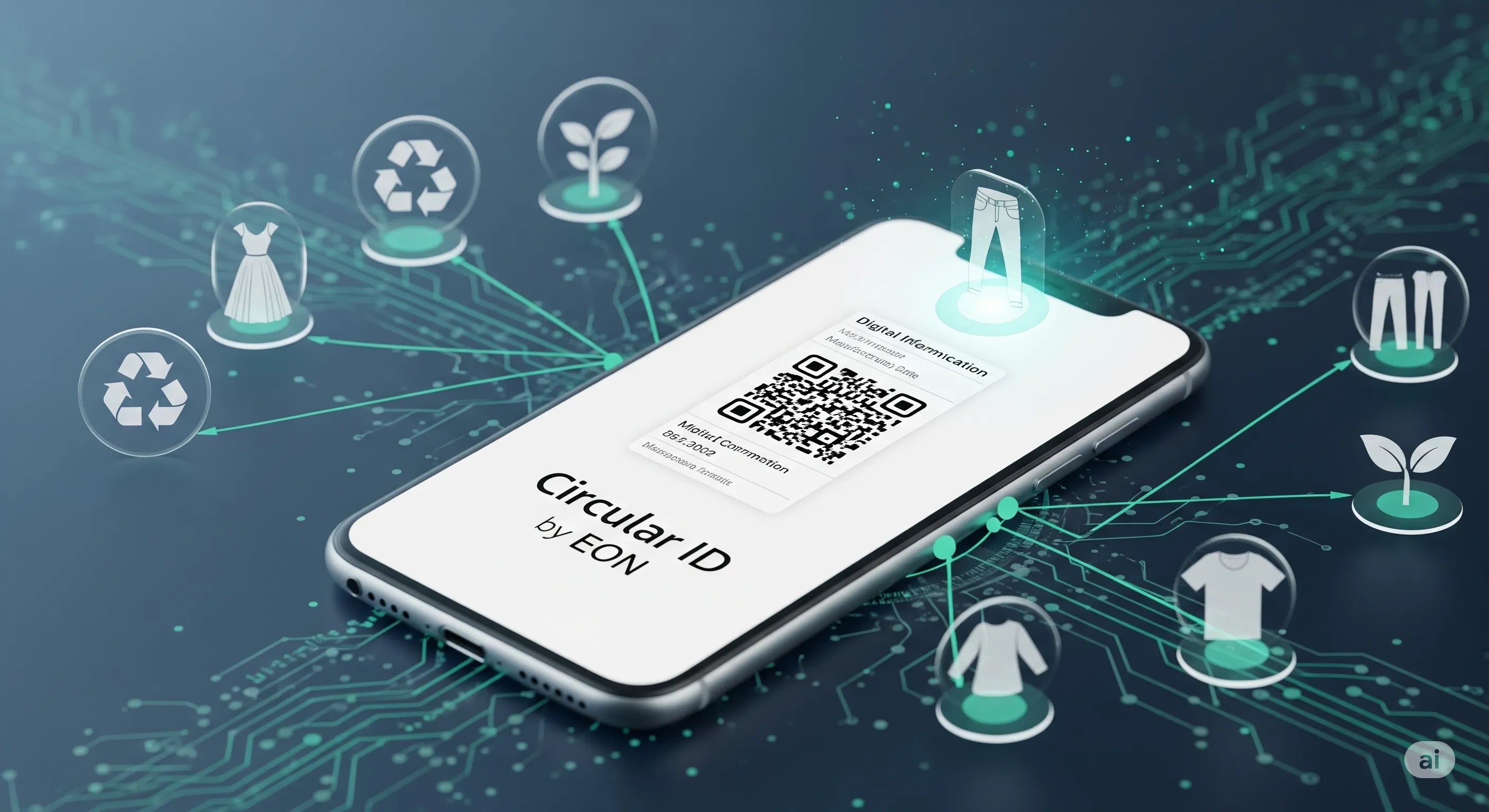Transforming Fashion with Transparency
The fashion industry contributes around 10 percent of global carbon emissions and produces vast textile waste. CircularID, developed by Eon Group, introduces Digital Product Passports (DPPs) to improve transparency, traceability, and circular practices across the fashion supply chain. By providing a unique digital identity for each product, CircularID enables sustainable practices and informed consumer decisions.
What is CircularID
CircularID assigns a digital passport to garments using QR codes or RFID tags. These passports track materials, origin, care instructions, and recycling pathways throughout a product’s lifecycle. The system supports resale, rental, repair, and recycling, extending product life and reducing environmental impact while promoting circular fashion models.
Eon Group: Innovating Product Digitization
Founded in 2017 by Natasha Franck, New York-based Eon Group digitizes physical products into cloud-based assets. Powered by Microsoft Azure, the platform integrates with existing fashion industry systems and scales across brands. Eon collaborates with technology partners, sustainability organizations, academic institutions, and philanthropic foundations to advance CircularID and circular economy adoption.
Industry Adoption
CircularID has been adopted by global brands such as H&M, Target, PVH Corp, YOOX Net-a-Porter, Nanushka, and Gabriela Hearst. Technology partners including Microsoft, SAP, and Accenture support its infrastructure. Sustainability organizations, academic institutions, and philanthropic groups provide guidance, research, and funding, ensuring the protocol remains robust, accessible, and scalable.
Sustainability Benefits
CircularID enhances transparency, reduces waste, and supports resource efficiency. By providing detailed product information, it combats greenwashing and encourages informed consumption. Products can be reused, repaired, or recycled, extending lifecycles and minimizing landfill contributions. CircularID also aligns with regenerative design principles, supporting recyclable materials and circular production.
Economic Advantages
Digital product passports unlock new revenue streams through resale, rental, and product-as-a-service models. Brands benefit from cost savings via improved supply chain visibility and reduced returns. Enhanced transparency fosters consumer trust, loyalty, and market advantage. CircularID also ensures regulatory compliance with EU sustainability standards, preparing brands for mandatory DPP adoption by 2026.
Real-World Applications
CircularID enables multiple applications across the fashion ecosystem. Brands embed QR codes to share sourcing, care, and recycling information. Consumers access product details to make conscious purchasing choices. Re-commerce platforms verify authenticity and material composition, while recyclers efficiently sort fibers based on precise material data.
Long-Term Impact
Widespread CircularID adoption can significantly reduce textile waste, enhance supply chain accountability, and foster consumer engagement with sustainability. It encourages innovation in circular business models, with projected economic benefits of €150 billion annually by 2030. Blockchain-enabled tracking ensures ethical sourcing and mitigates environmental and labor risks.
To Remember
CircularID provides a scalable solution for the fashion industry to meet sustainability goals, reduce environmental impact, and unlock economic opportunities. By integrating digital product passports, brands can lead in circular fashion, empower consumers, and align with emerging regulations while driving innovation across the supply chain.



